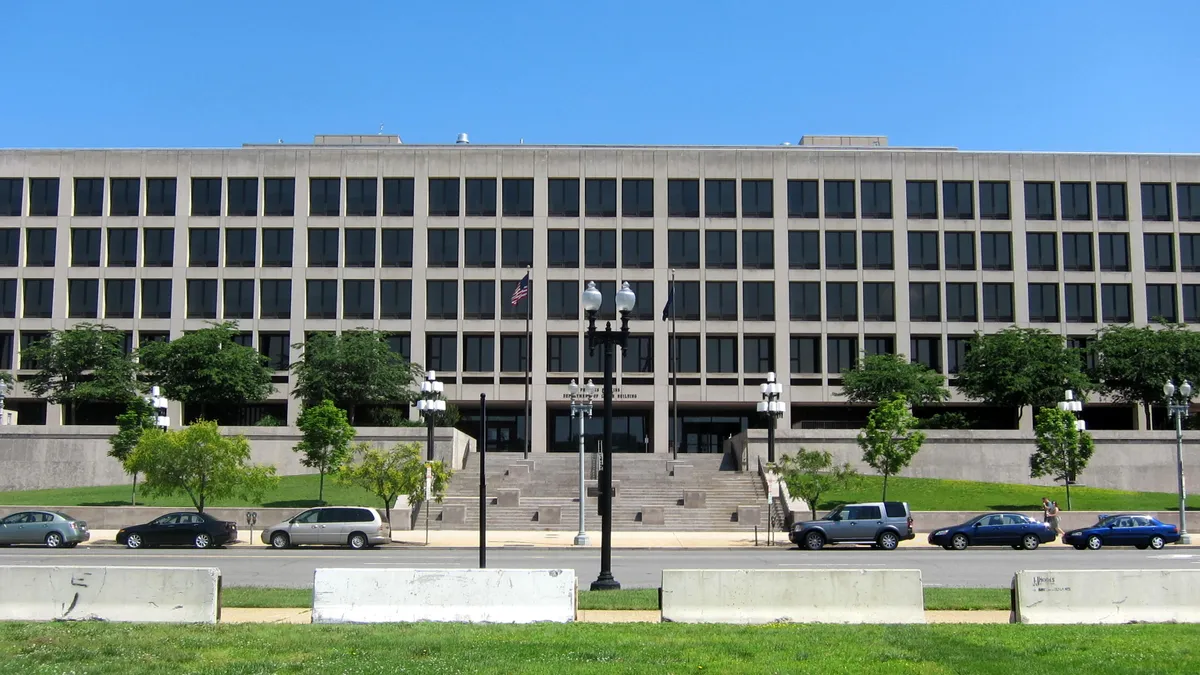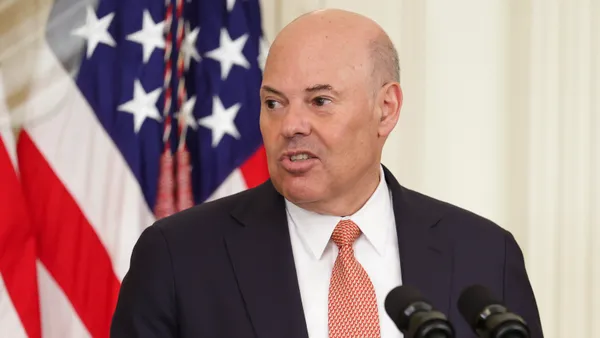Dive Brief:
- The U.S. Department of Labor (DOL) is considering a "religious liberty" exemption for businesses with federal contracts, it announced in its most recent regulatory agenda.
- The move would further formalize an earlier directive but it's unclear how it would work with an Obama-era executive order protecting LGBT workers from discrimination by contractors. As BuzzFeed pointed out, it's also not clear whether the exemption would apply only to religious corporations or extend to closely held, for-profit businesses with religious owners. H. Juanita Beecher, an attorney with Fortney Scott, told HR Dive that it's notable that the directive makes note of the Hobby Lobby and Masterpiece Cakeshop — two businesses that would fall into the latter category.
- The proposed rule is expected in December.
Dive Insight:
The move is "not surprising," Beecher said. "What they're attempting to do is to make sure that religious organizations are not being discriminated against," she explained. "They're really trying to clarify what the rules are for religious organizations who are government contractors or who want to be government contractors. That's really the focus of the regulations."
"How far they're going to go down that road is going to be the interesting part," she continued. "To what extent will beliefs of a particular religion be covered by these new regulations?" It's unclear whether the rule might enable an organization to fire a woman for having a baby out of wedlock, for example, and remain a federal contractor.
And unless President Donald Trump rescinds part of it, Beecher said she wasn't sure what impact the proposed regulations will have on Executive Order 11246, which, among other things, forbids federal contractors from discriminating against employees based on sexual orientation and gender identity.
The announcement comes at a time when two other federal agencies, the U.S. Department of Justice (DOJ) and the U.S. Equal Employment Opportunity Commission (EEOC), are in disagreement about workplace protections for LGBT applicants and employees. The commission continues to enforce its position that Title VII protects workers from discrimination based on sexual orientation and gender identify, but not without pushback. Earlier this month, a Houston-based coalition of Christian pastors sued EEOC, challenging its stance. Meanwhile, several cases addressing this question have made their way to the U.S. Supreme Court, and DOJ, representing the administration, is emphatic that Title VII includes no such protections.













